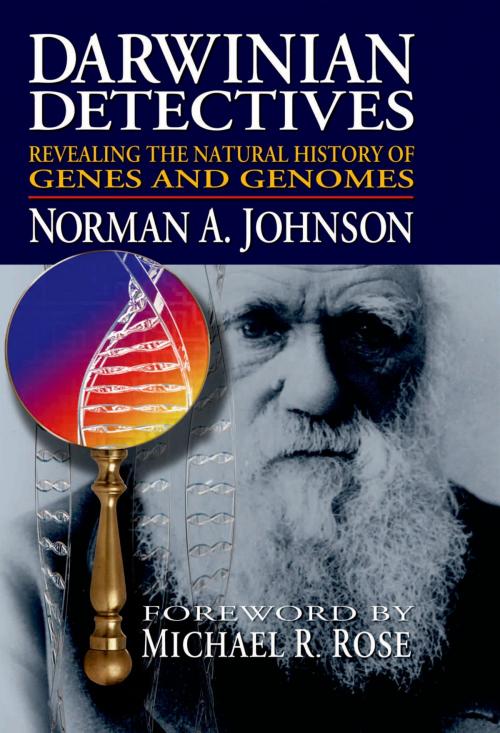Darwinian Detectives
Revealing the Natural History of Genes and Genomes
Nonfiction, Science & Nature, Science, Biological Sciences, Genetics, Evolution| Author: | Norman A. Johnson | ISBN: | 9780190294458 |
| Publisher: | Oxford University Press | Publication: | July 6, 2007 |
| Imprint: | Oxford University Press | Language: | English |
| Author: | Norman A. Johnson |
| ISBN: | 9780190294458 |
| Publisher: | Oxford University Press |
| Publication: | July 6, 2007 |
| Imprint: | Oxford University Press |
| Language: | English |
Biology is often viewed today as a bipartisan field, with molecular level genetics guiding us into the future and natural history (including ecology, evolution, and conservation biology,) chaining us to a descriptive scientific past. In Darwinian Detectives, Norman Johnson bridges this divide, revealing how the tried and true tools of natural history make sense of the newest genomic discoveries. Molecular scientists exploring newly sequenced genomes have stumbled upon quite a few surprises, including that only one to ten percent of the genetic material of animals actually codes for genes. What does the remaining 90-99% of the genome do? Why do some organisms have a much lower genome size than their close relatives? What were the genetic changes that were associated with us becoming human? As molecular biologists uncover these and other new mysteries, evolutionary geneticists are searching for answers to such questions. Norman Johnson captures the excitement of the hunt for our own genetic history. Through lively anecdotes, he explores how researchers detect natural selection acting on genes and what this genetic information tells us about human origins.
Biology is often viewed today as a bipartisan field, with molecular level genetics guiding us into the future and natural history (including ecology, evolution, and conservation biology,) chaining us to a descriptive scientific past. In Darwinian Detectives, Norman Johnson bridges this divide, revealing how the tried and true tools of natural history make sense of the newest genomic discoveries. Molecular scientists exploring newly sequenced genomes have stumbled upon quite a few surprises, including that only one to ten percent of the genetic material of animals actually codes for genes. What does the remaining 90-99% of the genome do? Why do some organisms have a much lower genome size than their close relatives? What were the genetic changes that were associated with us becoming human? As molecular biologists uncover these and other new mysteries, evolutionary geneticists are searching for answers to such questions. Norman Johnson captures the excitement of the hunt for our own genetic history. Through lively anecdotes, he explores how researchers detect natural selection acting on genes and what this genetic information tells us about human origins.















